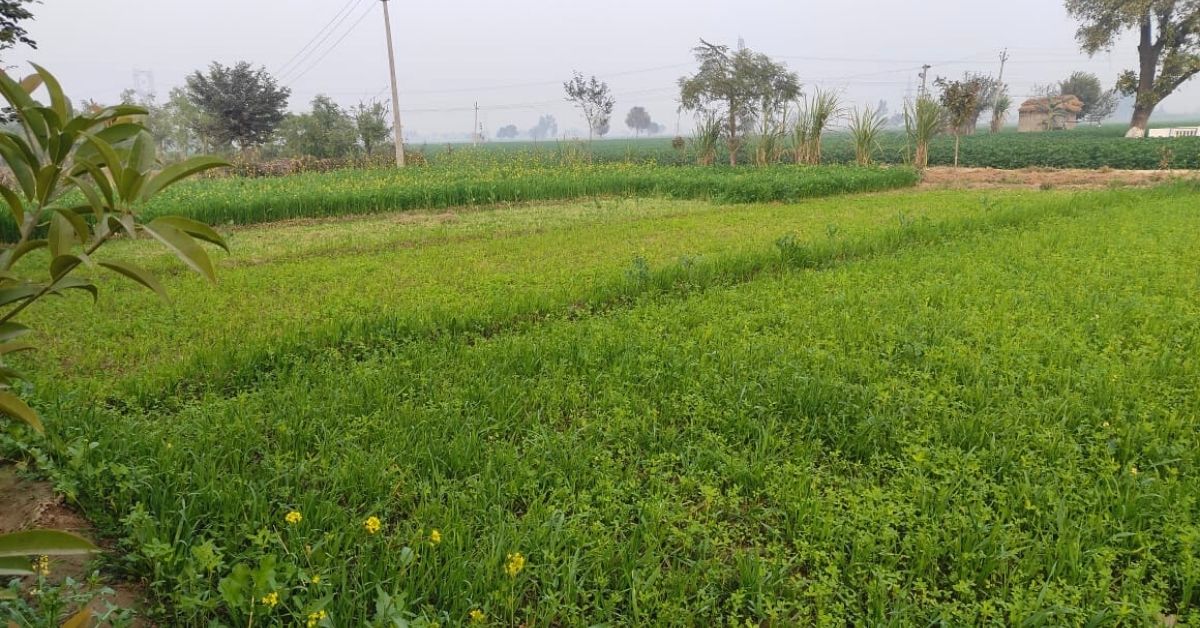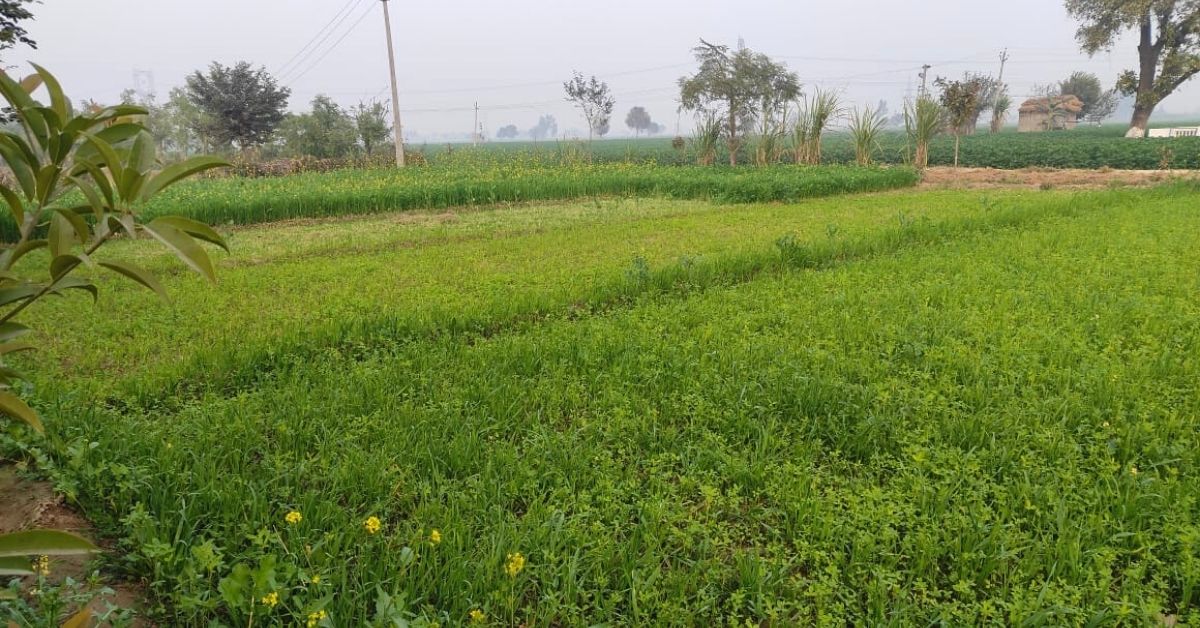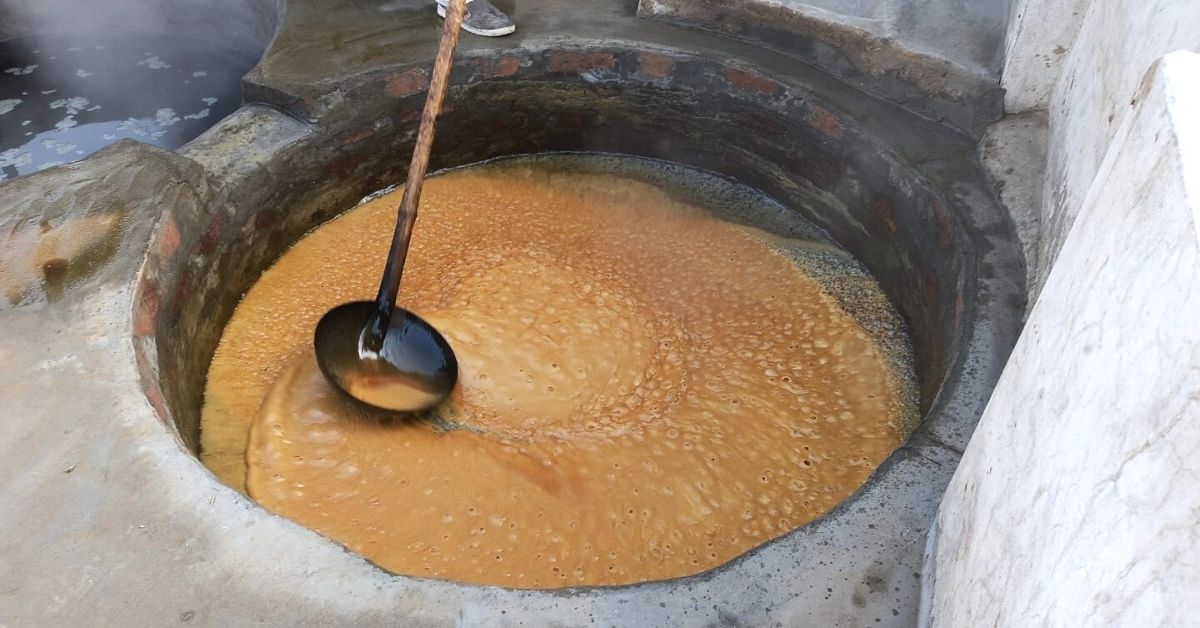NRI Quits Job & Returns To India To Start Organic Farming; Earns Rs 12 Lakh/Year
Rajwinder Singh Dhaliwal quit his job as a chef and returned to Punjab to start organic farming, growing sugarcane and selling value added jaggery. Here's how he did it

In 2007, Punjab-based Rajwinder Singh Dhaliwal’s family moved to the US, when he was 33-years-old. Initially, Rajwinder earned his livelihood by driving trucks, and later pursued a degree in hotel management.
Eventually, he became a successful chef, but later, decided to return to India. “The immense exposure to the culture, family system, lifestyle and other aspects of the USA helped me learn about the people there. But I realised that I valued Indian culture more, and decided to return to my roots,” he tells The Better India.
After returning, Rajwinder launched a pizza restaurant with multiple chains in Punjab. “I signed up for a franchise model in 2013, and a couple of years later, I launched one with my brand and expanded the restaurant chain,” he says.
“I was earning well with this business, but it came with a lot of stress. I also demanded that I deal with the bureaucracy and other government machinery. I believe that farming is peaceful and independent. My family practised farming using chemicals, but I wanted to try organic farming for health reasons. Managing business and farming simultaneously was unfeasible, so I decided to quit the restaurant venture,” he explains.
Today, Rajwinder is growing crops on six acres of land using integrated farming methods, and earning high profits for his efforts.
Creating an organic paradise

In 2017, after deciding to wind up his business, the 47-year-old moved to Lohara village to experiment with organic farming on his 8-acre ancestral land. But there was a flip side. Rajwinder had never toiled in the field.
“On social media, I met some farmers practising organic farming who helped during the initial stages. I also took help from NGOs and visited farmers in person. These visits helped me understand different organic practices. I did not imitate any specific method adopted by others, and innovated one that suited my needs,” he adds.
He spent almost a year carving out a 6-acre land by introducing cow dung, compost and other organic matter. “It took months to generate the right amount of bacteria and other organic matter that would facilitate the growth of plants,” the farmer says.
Initially, Rajwinder started growing sugarcane on a 5-acre land. He complimented plants such as turmeric, fruit-bearing trees such as guava, chikoo, plum, pear, kinnow, pomegranate and others. “I identified 23 fruit varieties and have planted 3,000 of them. In addition, I grew potato, garlic, mustard, onion, rose and other seasonal plants,” he says.
Rajwinder adds that the fruit plants, which are still at a young age, will provide an additional income in the long run. The seasonal vegetables allow a steady cash flow through the year. Moreover, he has specifically chosen to plant sugarcane varieties suitable for producing sugar and jaggery. He used mulching, drip irrigation and other modern methods like organic decomposer and equipment to reduce the water requirement for crops. “The overall measures have reduced the water requirement by 75 per cent compared to traditional farming methods,” he shares.

“I planted sugarcane crop varieties like 64, 89003, 85 and 88, which are suitable for agro-processing and started making jaggery and sugar from the harvest. Having a setup is inexpensive and feasible. Rather than selling conventional jaggery, I value-added it by using sesame, dry fruits, turmeric, holy basil, ajwain, fennel and moringa,” he says.
Rajwinder adds that conventional jaggery costs Rs 310 per kilo, whereas he offered the unique product at Rs 370 for the same quantity.
By the third season, his sugarcane yield increased to 10 tonnes a year, and now reached 12 tonnes. “Apart from jaggery, I process the sugarcane juice further to convert it into refined and brown organic sugar,” he says.
Rajwinder also processes turmeric into powder to sell it in the market. “I did not have any market linkages and used social media platforms like Facebook and Instagram to generate sales. I did not make packets but offered loose products and posted pictures explaining their quality and purity,” he says, adding, “It also helped me cut down on plastic usage and take an eco-friendly approach.”
Earning 40 per cent more
Today, the total revenue from the overall sales earn Rajwinder Rs 12 lakh per year, he says. “I earn Rs 8 lakh by selling jaggery alone. If I sell sugarcane to the factory, I will receive approximately Rs 350 per quintal. But processing the same is earning me Rs 1,100 equal quantity. I sell brown sugar at Rs 140 a kilo, a premium than the refined sugar,” he says.
“I earn about 40 per cent more than a farmer can from the 6-acre land. All thanks to agro-processing,” he adds.

Speaking about charging a higher price for his products to the customers, Rajwinder says he explains to customers in detail why this cost is justified. “I tell them they will require less quantity of jaggery or turmeric for their daily use, as compared to other products in the market. The premium is for the purity and superior quality of the products, as they are non-adulterated and not made from inferior raw materials. The overall sugar or jaggery is reduced by 30 per cent because of the better sweetness. Hence, the money paid for the better quality products does not become economically expensive,” he says.
Tajinder Singh from Ludhiana is one of Rajwinder’s customers, and has become a regular since he first tried the products. “I believe in organic food and have consumed jaggery and sugar from Rajwinder’s farm. I trust the quality of the products and have been a loyal customer for the past few months,” he says.
Though Rajwinder has sought success in his agricultural adventures, his family is not entirely supportive of his activity. “My family is unhappy with the decision to practise agriculture. I have moved 35 km away from the city to my farm, and it causes much inconvenience, especially to my two daughters who are fond of urban life,” he notes.
But Rajwinder is determined to continue and feels confident about his current progress. He is sure his income will multiply once the trees start bearing fruits, as he shares plans about expanding his agricultural land by taking more varieties of crops.
“There is much adulteration in food, and instead of bettering our health, the items do more harm to the human body. I aim to produce quality food products similar to how I grew up during my childhood and the earlier generations who were blessed by the same,” Rajwinder adds.
Edited by Divya Sethu
If you found our stories insightful, informative, or even just enjoyable, we invite you to consider making a voluntary payment to support the work we do at The Better India. Your contribution helps us continue producing quality content that educates, inspires, and drives positive change.
Choose one of the payment options below for your contribution-
By paying for the stories you value, you directly contribute to sustaining our efforts focused on making a difference in the world. Together, let’s ensure that impactful stories continue to be told and shared, enriching lives and communities alike.
Thank you for your support. Here are some frequently asked questions you might find helpful to know why you are contributing?


This story made me
-
97
-
121
-
89
-
167











